#Athletic Club de Bilbao
Text

Athletic Club (1992/93)
#Fútbol#Plantillas#Athletic#La Liga#Athletic Club#España#Athletic de Bilbao#Deporte#Athletic Club de Bilbao#Deportes#Football#Sport#Team#Squad#Spain#Sports#Retro Fútbol#1992/93#90s
1 note
·
View note
Text
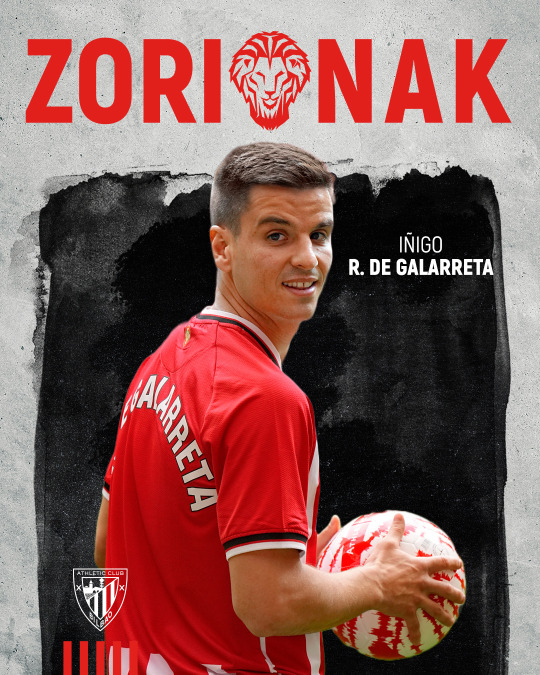
Feliz Cumpeaños Iñi! ❤️🤍
30 today!
#inigo ruiz de galarreta#ruiz de galarreta#inigo jr#iñigo ruiz de galarreta#iñigo r de galarreta#athletic bilbao#inigo r de galarreta#athletic club bilbao#ini!#ini#Iñi
2 notes
·
View notes
Text

3 notes
·
View notes
Text
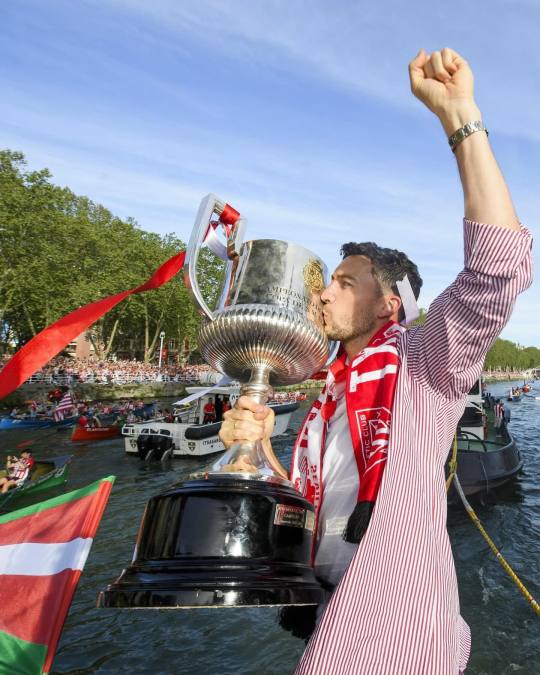
#Oscar De Marcos#Óscar De Marcos#Athletic Club#Athletic Bilbao#Copa del Rey#Football#It has been some time#I forgot all my football tags
0 notes
Note
I assume you heard of what the Real Madrid twitter account posted, how Franco was a supported of Barça? Amazing historical revisionism, as if Catalans weren't tortured or murdered for daring to speak their language, or how even one of the directors of Barça was murdered after being accused of defending the independence of Catalonia.
I'm sure they are aware they're lying, I don't believe someone would be so ignorant to make up something like that and somehow convince themselves of it.
Basically, if someone's not aware of what happened, Real Madrid published a video saying that FC Barcelona (Barça) was favoured by the Spanish fascist dictator Franco, which is false. The team that has always been associated with Francoist beliefs is Real Madrid, so I assume they want to distance themselves from that by accusing their main rival (Barça), who also happens to be a symbol of a minority (Catalans) that was one of the main groups targeted by Spanish fascism.
Some actual historical information about Franco and Barça:
1. In 1939, all football clubs that were federated in the Catalan Federation were banned from playing. All the players' contracts were cancelled. That includes Barça. Some months later, they were reformed and could continue existing with a completely different directors/administration board accepted by the regime. (Women are banned from this position, when Barça had la Sagi.) Copying the model of Mussolini's Italy, the Francoist dictatorship gave control of sports to the Falange (the fascist party, the only party allowed) who controlled everything from the Delegación Nacional de Deportes (National Sports Delegation).
2. For the previous resolution, all of Barça's administratives are ceases and their names and files are given to the military police to control them. The board and administration of all the club was purged.
3. The regime sentenced to death and killed the president of Barça at the time (Josep Sunyol i Garriga) for being pro-Catalan.
The president of Real Madrid (Antonio Ortega) was also killed for being a communist. The difference is that nowadays, since the end of the dictatorship, Barça honours Josep Sunyol, while Madrid acts as if Antonio Ortega had never existed and doesn't have any space dedicated to him. Not only that, but if you look at Real Madrid's website, they leave an empty spot during the years that Antonio Ortega was president (1936-1939), pretending he never was and there simply was no president during those years.
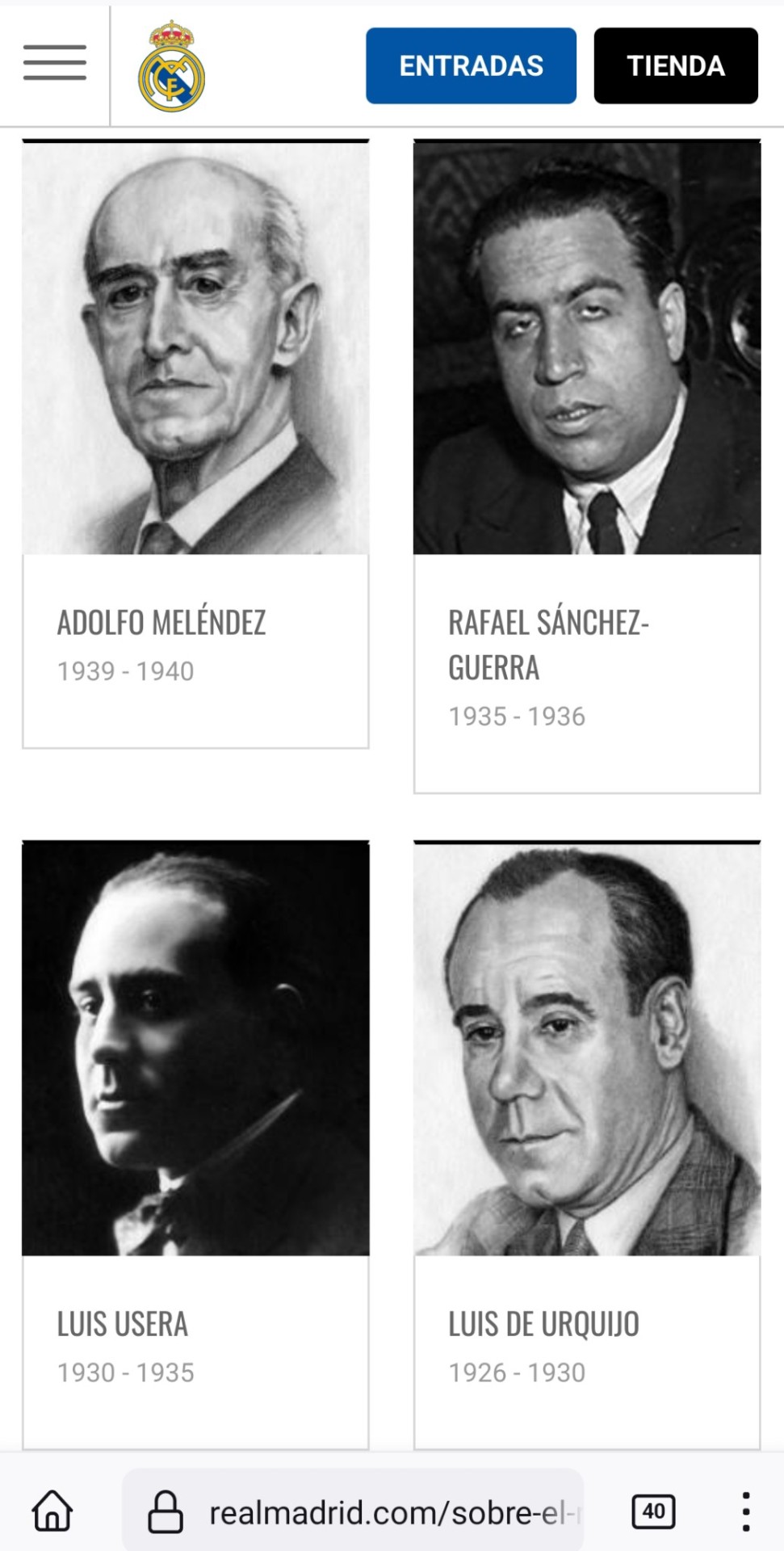
All the opposite, Real Madrid honours Santiago Bernabéu (the team's stadium is named after him), who worked to bring Real Madrid closer to the dictatorship. Even before Franco gained power, in the 1920s, he said that Real Madrid defends "the Spanish pride and cause". He later enlisted in the Spanish army and joined the fascists in their coup d'etat that led to the Spanish Civil War.
4. Barça had to change their entrance tickets and their name to Spanish following Franco's illegalization of the Catalan language. It stoped being called "Futbol Club Barcelona" (Catalan) and had to be called "Club de Fútbol Barcelona" (Spanish). Consequently, the letters in the club's shield were consequently changed from F.C.B. to C.F.B. The club wouldn't get their original Catalan name back until 1973.
5. Removed the Catalan flag from Barça's shield. They had to have 2 red bars instead of the 4 bars of the Catalan flag. Later they could get it back because Barça's shield is based on the shield of the city of Barcelona, so they alleged it's just a symbol of the city.
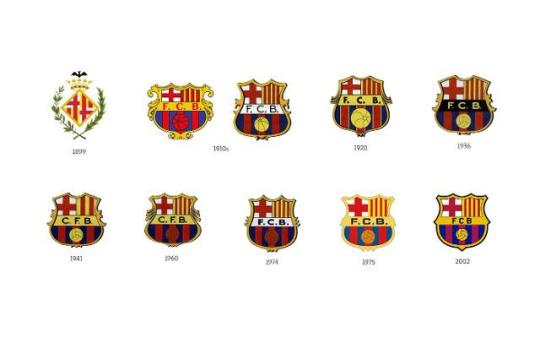
6. Instrumentalized Barça and Athletic de Bilbao against Catalan and Basque people, since the regime identified Barça and Athletic de Bilbao as the teams that symbolise these two minority nations and their independentism. Their first match after the war was scheduled by the regime, a Barça vs Athletic de Bilbao where the whole stadium was wrapped in huge Spanish flags and were various fascist gave speeches in favour of Franco and Spanish unity, including the general Álvarez-Arenas who talked about the purges by saying he praised Barça for "having thrown away forever the anti-Spanish seed, exposing their idea of what sport entities must be patriotically, the true healthy sport to educate the masses" ("que ha sabido arrojar para siempre la semilla de los antiespañoles, exponiendo su idea de lo que patrióticamente han de ser las entidades deportivas, el verdadero n del deporte sano y educativo de multitudes").
7. The regime abolished the Catalonia League, where Barça played.
8. More purges in Barça followed after that first one. The dictatorship carried out in-depth investigations into Barça's directives and members to find people who fought for Catalan rights. Some people were accused for being in the Barça directive. Here's some extracts from the letter where the leader of the fascist police in Barcelona, Luis Martí Olivares, sent to order the arrest of some Barça directives and to order them to be taken to Madrid for trial:
In front of the statue of Casanovas, they used to celebrate acts of separatist affirmation [...]. All the directives, players and members [of Futbol Club Barcelona] have always attended it with flower crowns, offerings with the shield of the "F.C. BARCELONA"
Another one by him:
It's publicly known that the "F.C. BARCELONA" has always been political, at the beginning pro-Catalan and since a long time ago frankly separatist and for this reason they have exploited their rivalry with R.C.D. ESPAÑOL, which has been precisely the only Football Club in Catalonia that has signified themselves as a true pro-Spanish. In the matches between these two Clubs, the Barcelona fans considered the Spanishists to be foreigners, because they spoke in Spanish.
After the purges, the new dictatorship-approved directive board of Barça was made (for the 1st time in the club's history) of people who were not even members of the club. Many of them were fervent Espanyol fans, not Barça fans.
Most of their first decisions were political, including the fact that they removed the club's founder Joan Gamper as honorary president and declared the new honorary president to be the Spanish fascist general Múgica.
They also made the players taka a flower crown to the founder of Spanish fascism José Antonio Primo de Rivera, which had the Spanish flag and the Barça flag and inscription "F.C. Barcelona to José Antonio".
One of Barça's directors during the dictatorship was actually a paying Espanyol member during his time as Barça president, another director was an army general that was appointed directed by the higher spheres of the dictatorship and who openly said he was directing Barça simply because "as soldier with discipline I'm following orders".
9. Finally, in June 1946, the members of the Barça board who were actually Barça fans and cared for the club mass resigned and pressured the director to stop being a club under direct control of the dictatorship's government. Their protest resulted in the end of the regime's direct intervention, and after 10 years Barça could go back to having a new directive board, this time mostly made up of people who had always been Barça fans, though the regime still only allowed people who were officially approved.
So while Barça was directed by people who didn't care about the club and who were very badly coordinated and later was starting to re-order itself (still only with approved people), Real Madrid had its golden age, under the director Santiago Bernabéu (who was defined as "he's what Philip II was to Spain: its best king" and as we've explained before was a fascist) and a director board that had close ties to the fascist government.
The club that was most favoured by the regime during its first years was Atlético de Madrid (at the time called Atlético Aviación) which was related to the Army. But the president of Real Madrid Santiago Bernabéu got the club closer to the dictatorship and made it become the regime's favourite from the late 1950s on. Real Madrid played a very important role in fascist Spain's public relations, because that's the historical period that ended the autarchy and when fascist Spain was accepted in the UN and kept the dictatorship with the agreement of the other countries. Real Madrid acted as a political and cultural ambassador of fascist Spain in other countries. In return it received favours from the dictatorship. For example, the regime changed the sports clubs' status so that Madrid could hire Alfredo Di Stefano instead of Barça in 1953. Barça had already closed the case and the club and the player were ready to sign, but the dictatorship's direct intervention stopped it.
10. Since speaking Catalan was banned, some Catalan traditions were banned, even some Catalan songs were banned, and everyone was forced to be Spanish and a Spanish nationalist, with the National-Catholic morale imposed in every aspect of life, Barça became the place to express Catalanity. People used to go cheer for Barça as the "allowed"/hidden way of cheering against Francoism and in favour of Catalonia. This sentiment was well represented by the song "Botifarra de pagès" by the Catalan humour band La Trinca, which they released in 1974:
youtube
If you don't speak Catalan, the whole song is about how Catalans cheer for Barça as a representation of cheering for Catalan rights and link how well Barça is doing at the time with Catalanism ("l'any que ve no farem riure, visca Catalunya ------" = "next year we [Barça] won't be laughable, long live free Catalonia!" with a peeeeeep over where the word "free" woul have been) with cultural references. For example, they sing the tempo of sardanes with the name Cruyff, and change the famous quote "som i serem gent catalana, tant si es vol com si no es vol" (we are and we will be Catalan people, wether they want it or not) from the song La santa espina (song forbidden during Franco's dictatorship) with "som i serem socis del Barça, tan si es vol com si no es vol" (we are and we will be Barça fans, wether they want it or not).
11. Regardless of the club's significance to the population (because, let's be honest, everyone knew what Barça meant), it was still a club that existed under a fascist dictatorship. During the dictatorship, only approved or appointed people held office and had the power to take decisions. And if you were in that position were you had been approved, even if you had your secret political beliefs and actions, there was only so much you could do in public before getting fired, arrested, banned for life from your job, get you and your family on a watchlist and likely get tortured.
One of the "unwritten rules" during the dictatorship was that anyone who created a prize or medal had to give the 1st to Franco. Barça did that too, but they have later addressed it and taken it back.
12. In the semifinals of 1942-1943 season, Barça won against Real Madrid by 3-0. On the return match, the dictatorship's police went down to the dressing rooms to intimidate the Barça players so they would let Madrid win. The result was 11-1 (Madrid victory), which effectively gave victory of the league to Real Madrid.
13. Dictator Franco, personally, was a follower of Real Madrid. It's known that he used to comment the lineups with his officers.
---------
Since Real Madrid published that video some days ago, so many Spanish newspapers, magazines and TV channels have talked at length about how Barça actually helped Franco. They use as excuse the fact that the Barça under the dictatorship's control (because remember that the dictatorship chose who would lead the team, even when these people weren't Barça fans it only mattered that they were fascists) gave condecorations to the regime officials. This is worth remembering and worth criticizing, but this says more about the dictatorship than it says about Barça, especially if they want it to represent nowadays Barça. Because the thing is that this is no secret, and Barça has already addressed it in the past: in 2019, Barça officially withdrew all the medals given to Franco officials. Real Madrid still honours fascists and erases their antifascist director, and knows that they're a symbol of Spanish nationalism.
However, it seems like the people who so quickly want to run to talk shit about anything that has to do with Catalonia don't usually keep the same energy to criticize the dictatorship itself and how it intervened every aspect of life, crushing dissidence and national minorities in everything, even their hobbies, nor to make the same criticisms of Real Madrid, because it's not just about Barça but a way to attack Catalan society.
#ask#anonymous#futbol#història#barça#esports#futbol club barcelona#fc barcelona#barca#football#european football#la liga#history#sports history#francoism#1940s#20th century history#spain#barcelona
187 notes
·
View notes
Text
Pablo Gavi Imagine - Parking lot ( en espanol)
Pablo Gavi, Aparcamiento

Estaba en los camerinos, esperando a Pablo para recogerlo y volver a casa. El partido de esta noche se acabó con un empate contra el Athletic Club Bilbao. Fue un partido bastante equilibrado. Bilbao siempre fue un equipo difícil de jugar contra.
Estaba hablando con su hermana y el hermano de Pedri, Fernando cuando recibí un mensaje.
“Puedes bajar al coche. Llego en diez minutos”
Al ver el mensaje, comprendí que le pesaba el empate de hoy. El resultado no afectaba el liderazgo del Barça en la Liga, pero la diferencia de puntos entre ellos y el Real disminuia. Yo bien sabía que no iba a ser el más feliz cuando lo iba a encontrar en pocos minutos.
Jugó bien, hizo una asistencia para Ferran, pero sabía que no iba a celebrar un empate.
Tenía un carácter de lo más competitivo que le costaba peleas en la cancha, varias faltas y tarjetas amarillas. Cada vez que lo veía al suelo, no podía evitar estar estresada si le había ocurrido algo serio o que iba a ser expulsado por su exceso de compromiso en el juego.
Me despedí de mis amigos para bajar a recoger el coche y esperar a Pablo aca.
Todavía había aficionados en el aparcamiento, pero fui discreta para llegar a mi coche. No habíamos oficializado nada, porque pensamos que nuestra relación no le debería importar a otros, sino a nosotros y a nuestros parientes.
Fue Pedri quien lo llevó al estadio porque deberían llegar más temprano que nosotros los espectadores para el discurso del mister, el calentamiento y toda la preparación que se requiere para jugar un partido en el Camp Nou.
Entré en mi coche, y le avisé con un mensaje, pero sabía que no lo iba a leer porque lo vi en el aparcamiento llegando solito. Pero no fue tan solo porque fue seguido por aficionados que querían una foto o autógrafo en una camiseta. Me vio e intentó acelerar el movimiento pero fue sin contar con las personas cada vez más numerosas que se acercaban de él. Vi el cambio en su cara, porque tanto a él como yo, no le gustaba estar rodeado por gente, sobre todo al momento de irse y con las cámaras delante de su carita y en mi dirección. Pablo pasó mucho tiempo con los aficionados, pero ahora supe que prefería que no fuera el caso. Le vi disculparse y dirigiéndose hacia el coche.
Me preparé y ya había arrancado el coche, para huir lo más rápido posible.
Entró, puso sus cosas detrás y me beso la mejilla brevemente, pero todavía tuve el tiempo de inspirar y oler a su perfume, lo que subió mucho mi ansiedad frente a los fans.
Cuando vimos a toda la gente que se acercaba del coche, móvil en la mano, me asusté y Pablo lo entendí de pronto.
“ Vamos, salimos de aquí. Pero antes voy a hacer algo"
"Qué ?"
No tuvo el tiempo de contestar porque bajó la ventanilla y dijo
“ Mi novia y yo queremos un poco de respeto. Gracias”
Lo miré con una cara, una mezcla de admiración, de orgullo y de amor infinito por este chico.
“ Voy un poco lento porque no quiero matar a alguien y porque sigo siendo bajo el shock de tu declaración " dije con una sonrisa
"Me enfadaron y sé que te causa ansiedad cuando hacen esto. Pero ahora, todo estará bien amor, dijo, una mano en mi rodilla”
Disfruté de la oportunidad de una luz roja para darme la vuelta y mirarle
“ ¿Estás seguro ? Ahora van a tener fotos y saber que tienes una novia "
"Claro que estoy seguro. No me gusta cuando invaden nuestra intimidad pero ahora no podrían inventar relaciones con princesas o modelos. Porque ya tengo a mi reina", dijo con un guiño.
Ríe y nos miramos con tanto amor que mi corazón casi exploto.
“ ¡Qué romántico !” Quise continuar pero un claxon me sacó de la mirada y deje un “oops” antes de arrancar rápidamente
“ Sabes, verte conducir no me da la gana de conducir yo mismo"
"Y eso por qué ? "
"Eres muy guapa y sexy cuando conduces, una mano en el volante y la otra en mi pierna o entrelazada con mi mano"
"Voy a llevarte todos los días al entrenamiento entonces jaja. No trabajo y voy a ser tu chofer oficial"
"Me parece bien “
Su móvil sonó y la cara de Pedri apareció en la pantalla riendo como un loco
“ ¿Qué te pasa hermano ?" Dijo Pablo, desconcertado
"No sabia que te convirtió en un árbitro en el aparcamiento "
"¿Qué dices por dios ?"
"Ya se encuentra en las redes tu cara enojada pidiendo respeto para tu novia"
"Alla vamos", dije
"No me estoy burlando de él Y/N"
Pablo se mofó de él enseguida pero Pedri no le dio la oportunidad de contestar
"En serio, no soy de broma, Pablo es tu caballero para defenderte cuando la gente puede ser invasiva. Solo para decir enhorabuena niños y ahora podré mostrar como eres con tu chica “
No nos dejó el tiempo de contestar y colgó el teléfono sin avisar.
"Es terrible él no ?”
Asiente mientras aparcaba el coche frente a nuestra casa.
En camino por entrar me dijo
“ No tenias frio así ? "Dijo, mostrando mi abrigo
"No y además tenía una manta , mira la cara que teníamos con Sira, le dije mostrando la foto que la novia de Ferran y yo sacamos durante el partido. Sabes que nunca íbamos a ver el partido adentro." Sonrió un poco, pero vi que estaba pensando en el partido
"Amor, jugaste bien y el equipo también. Ven aquí Golden Boy” dijo, mis manos ya en su talla para atraerle contra mi.
Se relajo un poco
"Créeme amor. Ya seguimos líder de la liga, nunca los madridistas van a doblarnos "
"¿Nos ? ¿Juegas también ? "
"No me viste ? Con mi super numero ?"
Dijo mientras abría mi abrigo para que se pudiera ver la camiseta blaugrana. Me hizo dar la vuelta para ver, lo que sabía de antemano, su nombre y el número 30.
Mi tentativa funciono al oír su risa justo antes de sentir sus labios sobre las mías, dándome un beso que recibí con placer. Nunca me cansaría de estar en sus brazos y besarle.
“ Vamos adentro amor o nos vamos a congelar” Me tomo la mano y entramos en la casa, muy felices de estar juntos.
21 notes
·
View notes
Text
El día de la Gabarra
Cuarenta años después de perseverancia y sufrimiento
la gabarra aborda los nuevos campeones de Bilbao,
los cazadores felinos, los guerreros de Vizcaya,
País Vasco entero vuelve a teñirse de rojo y blanco.
La realidad es que se sufrió mucho en tierras de Sevilla
contra los honderos baleáricos, contra los diablos de Mallorca,
cuya furia puso a temblar cada corazón comprometido
con el Athletic Club de Bilbao, el Rey de Copas.
Pero, es que a seis mil cuatrocientos cincuenta y cuatros kilómetros
entre San Juan, vanguardia de España en América
y Bilbao, leal e invicta villa del edén euskérico,
yo celebro el fin de semana más largo de mi perra vida.
Hasta que llegó el Día de la Gabarra, la tarde santa de Bilbao,
y yo muy gustoso, desde el otro lado del mar antillano
bebiendo todas las cervezas del universo entero
porque el Athletic Club de Bilbao es Campeón.
-Jomar, 11 de abril, 2024.
2 notes
·
View notes
Note
Kaixo girls! I have a question. I'm aware of the Athletic Club rules of having only Basque players or players born in all of EH, but was that still the case during Franco's dictatorship, considering he wanted to erase and destroy everything that wasn't Castillian? They even had to change the club name to the Spanish translation, as it is in English.
Kaixo anon!
From Athletic Club's official website:
Athletic Club is based in Bilbao, a city situated in Biscay, a province which makes up part of the Basque Country. The club’s sporting philosophy is governed by a code which states that Athletic Club may only field players who have come through its own academy or the academies of other clubs in the Basque Country, or players who were born in the following territories which constitute the Basque Country: Biscay, Gipuzkoa, Alava, Navarre, Labourd, Soule and Lower Navarre.
Why we use this quote? Because is a common misconception that only Basques players can play for Athletic Club. Basque players - of course - and as you read in the quote, those who have learned and become professional in Basque clubs. They may be from other regions, Fernando Llorente comes to mind, he's from La Rioja.
Regarding Franco. The radical Spanish nationalism of the dictatorship accepted that Spaniards - see, we weren't Basques, we were Spaniards too - played for Spanish teams. It was expected! In fact, having foreign players in the teams was not always permitted: it was legal in the 1947-1948 season, but illegal between 1953-56, again legal in 1962 and illegal in 1974, and during all this time just 1 or 2 foreign players were admitted per team.
Franco made every football team translate their names to Spanish, it's true, and from 1940 to 1972 it was forced to be legally known as Atlético de Bilbao. So don't use it. Don't use either el Bilbao, pretty please.
#euskadi#euskal herria#basque country#pais vasco#pays basque#sports#athletic club#bilbo#bilbao#bizkaia#football#anons#history
3 notes
·
View notes
Text
VIRGINIA MAESTRO..lo de la disco AMOR BRUJO (luego CAPRICHO) junto al TERRANOVA (luego la FE DE MARIA) al q iba con RAMON VALLE-INCLAN a tomar las PRIMERAS COPAS (aunque luego no nos pillaba cerca la disco GARAMOND en calle Eduardo DATO donde un día en 2007 se puso junto a nosotros TOÑI de AZUCAR MORENO saliendola CANCER a continuación a su hermana ENCARNACION y dónde nos ligamos unas BRASILEÑAS aunque solo RAMON próspero con una tal KALINE q luego me mensajeaba desde BRASIL a donde se fue con èl o incluso un día en disco KEEPER cuando RAMON se fue al BAÑO me agarró para bailar al estilo LAMBADA ..mientras yo un día fui al adjunto bar PIRATA con IVONNE desde su casa en barrio TRAFALGAR=derrota Borbonica-napoleonica intentando los Ingleses remolcar el buque insignia SANTISIMA TRINIDAD a GIBRALTAR q perdió ESPAÑA al entrenar al BOURBON en la Guerra de la SUCESION..y a la cual no llame más xq el día de mi 35 cumple =28-11-06..la invite, me dijo q la esperara q estaba viniendo de TOLEDO=Capital IMPERIAL..y no APARECIO)
....me recuerda tanto a la canción SEVILLA de Miguel BOSE (por lo del SORTILEGIO) y al Hotel-Convento LA GLORIA (SEVILLA) xq su bar se llama EMBRUJO y en el cual me hospede (Junto a la Mexicana y la Boliviana en la misma habitación ..así como en una venezolana y su novio al q gane 10 cervezas x rebajar 10 minutos mi anterior marca d maratón..pues me dijo q a 1/2 de maratón le llegó un SMS y que se ACOJONO al ver q Palmaria 13 cervezas ..pero afloje el ritmo al engancharme con la 1era mujer TINA MARIA RAMOS del C.A. "GETA-FE" xq había hecho un SOBRE-ESFUERZO al salir de los últimos xq tuve q volver al Hotel-Convento LA GLORIA al darme cuenta media hora antes de empezar q se me olvidó el CHIP de TIEMPO x lo q cogí el coche y me saltaba los SEMAFOROS pero al volver me paro la GUARDIA CIVIL , Le explique lo q me pasó y me dejó ir..luego al acabar la carrera vino un tipo a buscarme al TUNEL xq me quería entrevistar EDUARDO ALDAN para DESPERADO CLUB SOCIAL (donde entonces estaba Christian GALVEZ q financio CD BLUE BIRD de Virginia MAESTRO) para ANTENA 3 (y el cual tras más de una década haciendo ESPINETE NO EXISTE hace EL JEFE en teatro)..

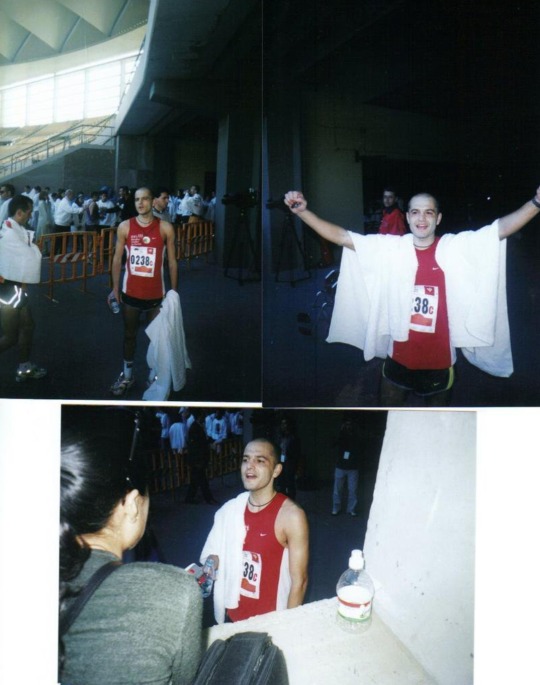
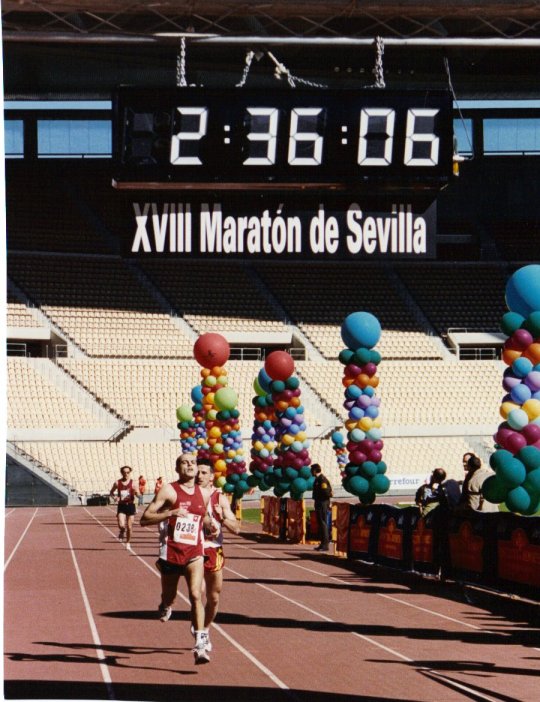
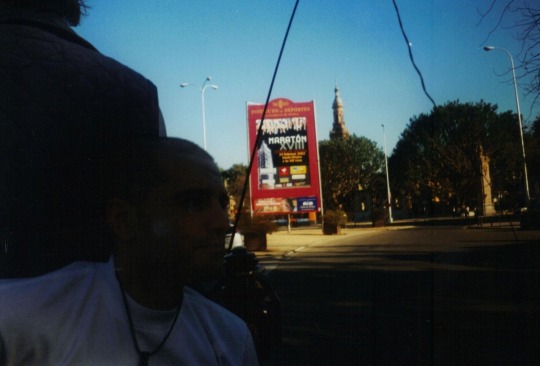
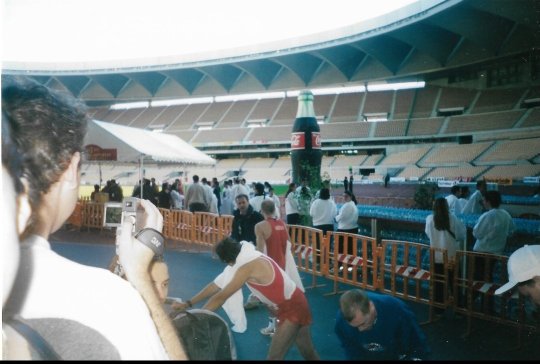
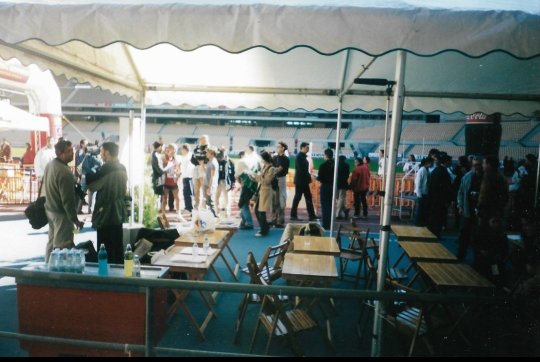
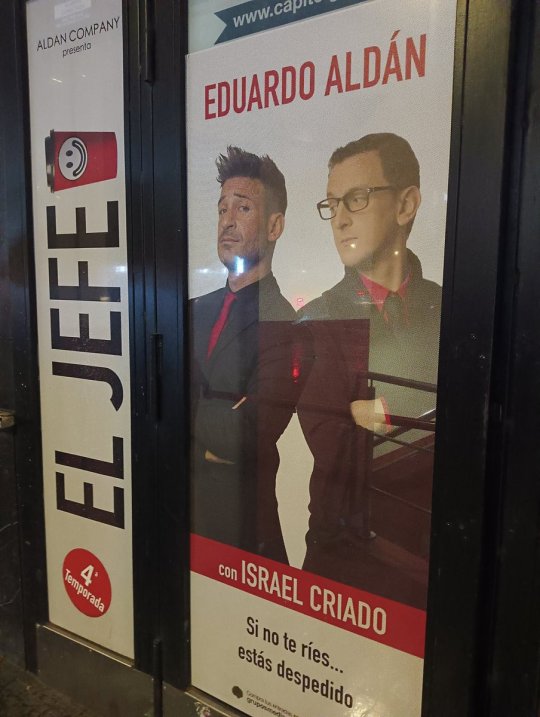
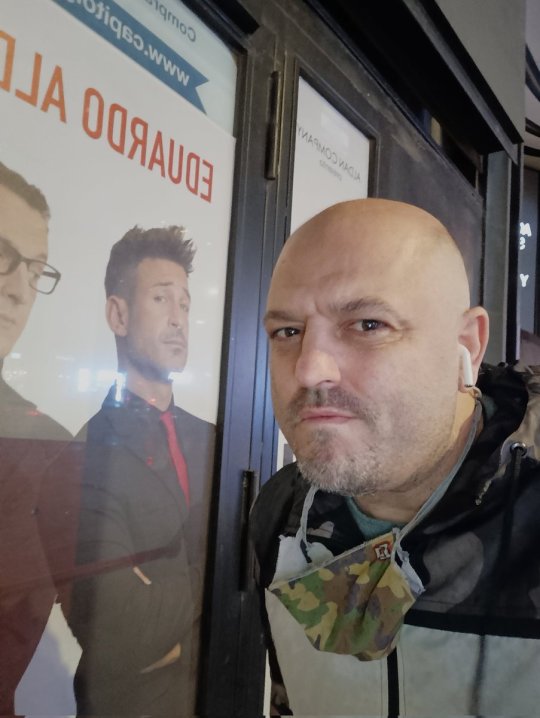
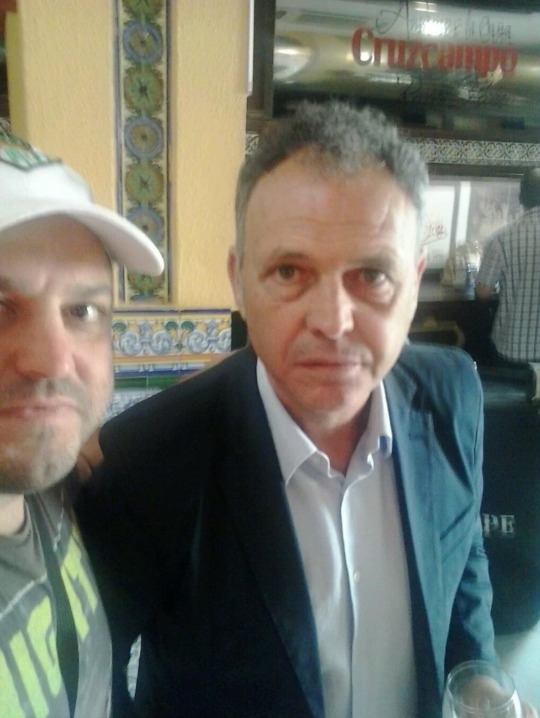

..despues regresamos a MADRID ese día (febrero 2002) parando en la MEZQUITA DE CORDOBA y compartí las 10 cervezas en el HARD ROCK CAFE de MADRID..
X cierto ..RAMON VALLE-INCLAN me dijo q vio en 07 en el GARAMOND a Joaquin CAPARROS cuando era entrenador de ATHLETIC CLUB BILBAO y con el q me fotografié 29-5-14 en el bar SAN ELOY de SEVILLA tras haber fichado día anterior x el GRANADA renunciando al LEVANTE (VALENCIA)..y el cual hizo debutar a MALOGRADO PUERTA , a Sergio RAMOS (nacido en CAMAS) y a JESUS Navas..y naciendo en UTRERA como malogrado J.A.REYES y el grupo LOS MUERTOS D CRISTO
1 note
·
View note
Text
Athletic Club - Granada Previa, Pronostico y Apuestas
New post on https://pronosticos.co/athletic-club-granada-previa-pronostico-y-apuestas-2.html
Athletic Club - Granada Previa, Pronostico y Apuestas
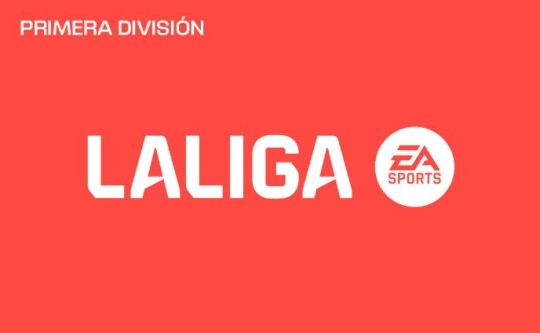
Vista Previa para Athletic Club – Granada Tras celebrar la conquista de la Copa del Rey surcando la ría de Bilbao a bordo de su mítica gabarra, el Athletic Club dejó escapar la victoria en San Mamés frente al Villarreal (1-1), pero los leones continúan bien ubicados en la zona noble de LaLiga EA Sports... Read more »
0 notes
Text
La Gabarra del Athletic, en directo | Locura absoluta en Bilbao: un millón de personas para ver a los campeones de Copa
Los campeones recorrerán la ría a partir de las 16.30 horas para ofrecer el título a sus aficionados.
— Leer en www.20minutos.es/deportes/noticia/5235207/0/celebracion-athletic-club-gabarra-directo-ultima-hora-fiesta-copa-rey/
View On WordPress
0 notes
Text
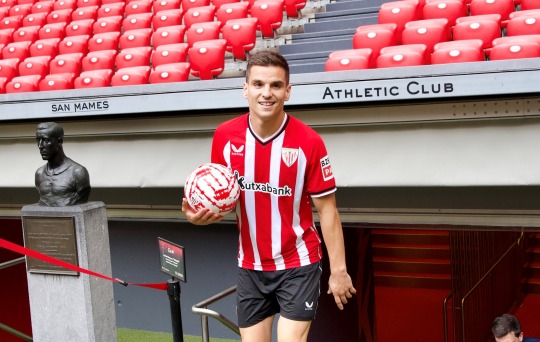
Welcome Home! ❤️🤍
#inigo ruiz de galarreta#ruiz de galarreta#inigo jr#iñigo ruiz de galarreta#iñigo r de galarreta#athletic bilbao#inigo r de galarreta#ini!#ini#athletic club bilbao
2 notes
·
View notes
Text
instagram
My favourite Athletic Club player renew till 2024 🥰♥️🤍
1 note
·
View note
Text
El feminismo, el cambio de sexo y el auge lgtbi hacen mella en el espíritu Vasco
Viajan a Sevilla por el Athletic y se hacen virales por las 290 cervezas que tomaron antes de ganar la Copa del Rey
Los aficionados del Athletic que se desplazaron hasta Sevilla el pasado sábado disfrutaron con entusiasmo las horas previas a ganar la Copa del Rey. Esta cuadrilla consumió sin límites y pagó una cuenta de infarto
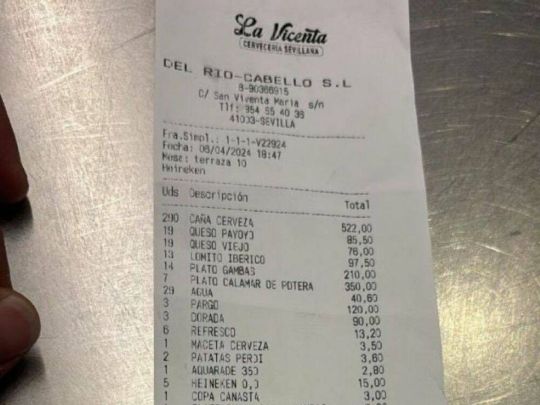
Por
Jorge García González (ElConfidencial.es)
10/04/2024 - 09:59
La final de la Copa del Rey, celebrada este sábado 6 de abril, atrajo a cerca de 70.000 aficionados del Athletic Club de Bilbao a la ciudad de Sevilla, lugar donde se disputó el partido con el Mallorca FC y que ganaron los rojiblancos en la tanda de penaltis. Además de llevarse el trofeo, la afición vasca fue entusiasta y generosa con la hostelería hispalense.
Uno de ellos compartió en su cuenta de ‘X’, antes conocida como Twitter, el ticket de la comanda que él y su cuadrilla pidieron durante las horas previas a la final del campeonato español. En total, 36 aficionados, según informa El Correo, que se pusieron las botas en la cervecería La Vicenta, situada en el casco antiguo de la capital andaluza.
Una cuenta de más de 2.200 euros y 290 cervezas
La cuenta incluía 290 cervezas, por un importe de 522 euros; 14 platos de gambas por 210 euros; 7 platos de calamar de potera por 350 euros; otros 7 de cachopos por 168 euros; 5 platos de presa ibérica por 120 euros; 3 pargos por otros 120 euros; 38 platos de queso por 161 euros; y 13 de lomito ibérico por 97 euros, entre otras viandas.
La cuenta ascendió a un total de 2.254 euros y la publicación se hizo rápidamente viral con 1,3 millones de visualizaciones y 2.000 de ‘me gusta’. “Os paso la cuenta de una merienda que tuve con mis barbudos en Sevilla este sábado… por si queréis ayudarme con el crowdfunding”, escribió @LaTrompetaDeAsi. Finalmente, la factura se pagó en efectivo.
0 notes
Text
Copa del Rey al día

Tras la obtención de la Copa del Rey por el Athletic de Bilbao, se han actualizado los datos de esa sección así como los de la ficha del club y el Resumen General Histórico del fútbol español.
El AreA, ¡¡más y mejor!!
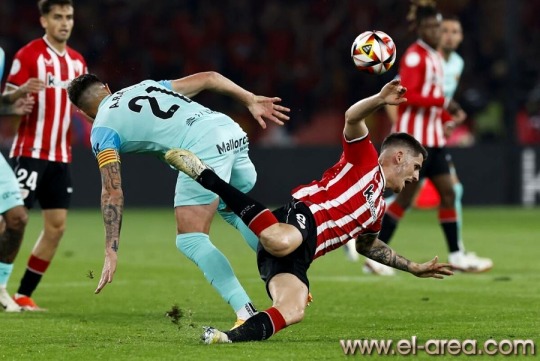
1 note
·
View note
Text
¿Cuál es la historia del Celtic de Bilbao y cómo se vincula con el Athletic Club?
🎰🎲✨ ¡Obtén 500 euros y 200 giros gratis para jugar juegos de casino con solo un clic! ✨🎲🎰
¿Cuál es la historia del Celtic de Bilbao y cómo se vincula con el Athletic Club?
Orígenes del Celtic de Bilbao
El Celtic de Bilbao es un equipo de fútbol con una historia fascinante que se remonta a sus orígenes en el siglo XIX. Fundado en 1890, el Celtic de Bilbao es uno de los clubes más antiguos de España y su legado se ha mantenido vivo a lo largo de los años.
El club fue creado por un grupo de jóvenes entusiastas de Bilbao que se inspiraron en la cultura celta y en el fútbol naciente en Inglaterra. Adoptaron los colores verde y blanco, que simbolizan la identidad celta, y establecieron un estilo de juego único que combinaba la pasión por el deporte con la fuerza y la determinación.
A lo largo de su historia, el Celtic de Bilbao ha pasado por altibajos, pero siempre ha mantenido su espíritu luchador y su compromiso con sus seguidores. Han logrado importantes triunfos en la liga local y han dejado una marca indeleble en el fútbol vasco.
Hoy en día, el Celtic de Bilbao sigue siendo un referente en la región y continúa atrayendo a miles de seguidores que admiran su historia y su dedicación al deporte. Con una base de seguidores leales y un legado centenario, el Celtic de Bilbao es mucho más que un simple equipo de fútbol, es una institución arraigada en la historia y la pasión del pueblo vasco.
Fundación del Athletic Club
El Athletic Club, también conocido como Athletic de Bilbao, es uno de los clubes de fútbol más emblemáticos de España y cuenta con una rica historia que se remonta a su fundación en 1898. El equipo fue fundado en la ciudad de Bilbao por un grupo de jóvenes entusiastas del deporte, liderados por Juan Elorduy.
La creación del club se debió en parte a la influencia británica en la región en esa época, ya que el fútbol se había convertido en un deporte popular en Inglaterra y comenzaba a ganar seguidores en España. El Athletic Club se convirtió en uno de los pioneros del fútbol en el país y pronto atrajo a talentosos jugadores locales que contribuyeron al éxito del equipo.
Una de las características más destacadas del Athletic Club es su política de cantera, que se remonta a sus inicios. El equipo se enorgullece de formar a sus propios jugadores a través de su famosa academia de Lezama, donde los jóvenes talentos reciben formación técnica y educativa.
A lo largo de su historia, el Athletic Club ha cosechado numerosos éxitos, incluidos varios títulos de liga y copa. Su filosofía de juego basada en el talento local y el compromiso con la cantera ha hecho que el club sea admirado dentro y fuera de España.
En resumen, la fundación del Athletic Club en 1898 marcó el inicio de una historia de éxito y pasión por el fútbol que ha perdurado a lo largo de los años, convirtiéndolo en uno de los clubes más importantes del fútbol español.
Relación entre Celtic de Bilbao y Athletic Club
La relación entre el Celtic de Bilbao y el Athletic Club es una conexión histórica arraigada en los corazones de los aficionados al fútbol en el País Vasco. Ambos clubes comparten una herencia común y una identidad arraigada en la región.
El Celtic de Bilbao, fundado en 1921, surgió como una respuesta a la prohibición impuesta por las autoridades franquistas al uso de términos extranjeros en nombres de clubes deportivos. Por lo tanto, el Athletic Club, conocido anteriormente como Athletic Club de Bilbao, cambió su nombre temporalmente a "Atlético Bilbao" durante ese período. Sin embargo, para muchos seguidores, el cambio de nombre representaba una pérdida de identidad.
El Celtic de Bilbao, que adoptó un nombre que aún resonaba con la tradición celta de la región, se convirtió en un símbolo de resistencia cultural y deportiva. Aunque no compite en la misma liga que el Athletic Club, ambos equipos comparten una conexión especial debido a su origen compartido y valores similares.
Los aficionados de ambos clubes a menudo muestran solidaridad y apoyo mutuo, asistiendo a los partidos del otro equipo y compartiendo una pasión común por el fútbol vasco. Esta relación única trasciende los límites del campo de juego y se extiende a la comunidad en general, fortaleciendo los lazos entre los seguidores y promoviendo el orgullo regional.
En resumen, la relación entre el Celtic de Bilbao y el Athletic Club es un testimonio de la rica historia y cultura del fútbol en el País Vasco, uniendo a dos clubes bajo un legado compartido de pasión y compromiso con sus raíces.
Evolución histórica del Celtic de Bilbao
El Celtic de Bilbao, también conocido como Athletic Club, es un club de fútbol español con una rica historia y una identidad única en el mundo del deporte. Fundado en 1898 en la ciudad de Bilbao, en el País Vasco, el club ha mantenido una estrecha relación con su región y su cultura a lo largo de los años.
La evolución histórica del Celtic de Bilbao está marcada por su compromiso con la cantera y la formación de jugadores locales. A lo largo de su historia, el club ha mantenido la filosofía de solo permitir jugadores vascos o formados en la región en su primer equipo, lo que lo convierte en un caso único en el fútbol moderno.
El Celtic de Bilbao ha cosechado numerosos éxitos a lo largo de los años, incluyendo varios títulos de liga y copas nacionales. Uno de los momentos más destacados en la historia del club fue la creación de la Liga española en 1929, donde el equipo se proclamó campeón en la primera edición del torneo.
Además de su éxito en el ámbito nacional, el Celtic de Bilbao también ha tenido un impacto significativo en el panorama europeo, participando en varias ediciones de la Liga de Campeones y la Europa League.
En resumen, la evolución histórica del Celtic de Bilbao ha estado marcada por su compromiso con sus raíces vascas, su filosofía de cantera y sus éxitos tanto a nivel nacional como internacional. Un club con una historia rica y un futuro prometedor en el mundo del fútbol.
Impacto del Celtic de Bilbao en el Athletic Club
El Celtic de Bilbao tuvo un impacto significativo en el Athletic Club, uno de los equipos de fútbol más emblemáticos de España. Esta fusión extraordinaria entre el Celtic Football Club de Escocia y el Athletic Club de Bilbao dio lugar a la creación de un equipo único y especial en la historia del fútbol.
El impacto del Celtic de Bilbao se hizo evidente en varios aspectos. En primer lugar, la combinación de la pasión y la tradición futbolística de estos dos clubes creó una identidad única y diferenciada para el Athletic Club. Los valores de esfuerzo, compromiso y trabajo en equipo se vieron reforzados por la influencia del Celtic, lo que contribuyó a forjar una mentalidad ganadora en el equipo.
Además, la presencia del Celtic de Bilbao en el Athletic Club impulsó la internacionalización del club, atrayendo la atención de seguidores de ambos equipos en todo el mundo. La fusión también generó un intercambio cultural y deportivo enriquecedor entre Escocia y el País Vasco, fortaleciendo los lazos entre ambas comunidades.
En resumen, el impacto del Celtic de Bilbao en el Athletic Club ha sido profundo y duradero. Esta unión única continúa inspirando a jugadores y aficionados, recordándoles la importancia de la historia, la pasión y la identidad en el fútbol. Sin duda, el legado del Celtic de Bilbao perdurará en el corazón de todos los amantes del fútbol y en la memoria de aquellos que valoran la grandeza de este deporte.
0 notes